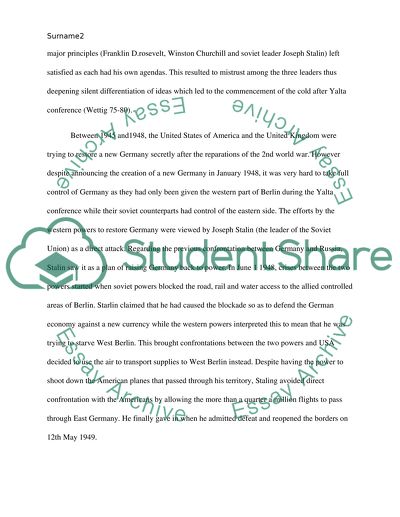Cite this document
(“Berlin blockade/ cold war Research Paper Example | Topics and Well Written Essays - 2000 words”, n.d.)
Retrieved from https://studentshare.org/history/1631623-berlin-blockade-cold-war
Retrieved from https://studentshare.org/history/1631623-berlin-blockade-cold-war
(Berlin Blockade/ Cold War Research Paper Example | Topics and Well Written Essays - 2000 Words)
https://studentshare.org/history/1631623-berlin-blockade-cold-war.
https://studentshare.org/history/1631623-berlin-blockade-cold-war.
“Berlin Blockade/ Cold War Research Paper Example | Topics and Well Written Essays - 2000 Words”, n.d. https://studentshare.org/history/1631623-berlin-blockade-cold-war.


